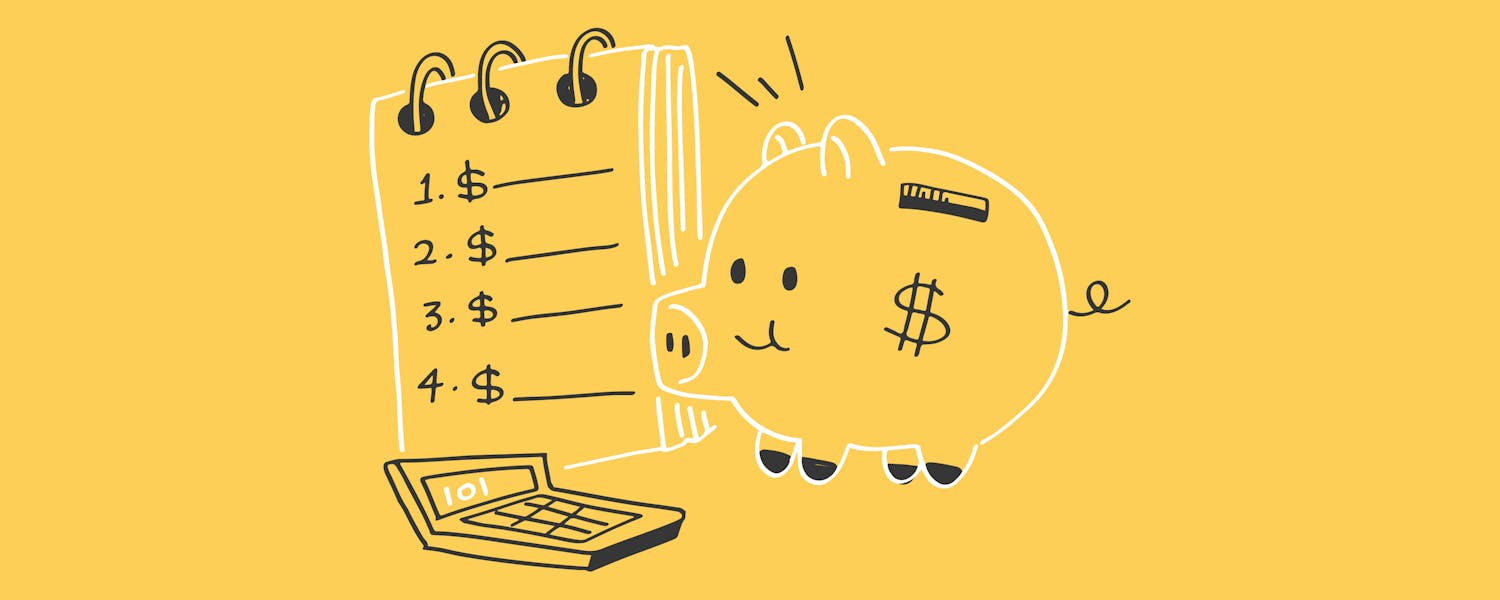How to create a basic budget
Anyone can get their finances in order. It's just a matter of taking control of your income and expenses, and adopting a champion mindset. With a basic budget, you can easily achieve this by allocating your expenses to well-defined categories and knowing what percentage of your monthly income should be used to cover them. Here's a proposal for doing this:
Housing
For most of us, housing is our biggest expense. Most experts recommend allocating up to a third of your monthly income towards this concept, while others may suggest up to 35%. However, our recommendation is to try to keep a simple lifestyle and to use your money for productive purposes.
Therefore, at Dear Money, we suggest allocating 25% of our salary to housing. If this isn't enough, consider asking for a raise, getting a roommate (or two), and you'll thank yourself for it in the future.
Utilities
This is a complement to housing, so if you follow our advice, the total allocation for both categories comes to 30%. Allocate 5% for complementary services such as electricity, water, gas, parking fees, laundry, garbage disposal, streaming services, internet, etc.
Groceries
Another home related concept and we’ve already reached 40%! We know it's not easy to live on a tight budget when it comes to food, but we’re not saying goodbye to all of your cravings. It's just a matter of controlling yourself, cutting unnecessary expenses, and using our money to buy food that’s both good for our bodies and our wallets.
Maybe you’ll have to tone down your wine preferences? Maybe you can buy some generic brands? Or even cut them from your grocery list. These luxuries fall under the category of wants and desires.
Another important thing to remember is that balancing meals at home and meals at restaurants is not easy, but trust us, if you discipline yourself to spend less and eat well, you'll start seeing positive changes in your finances.
Transportation
OK, we're out of the house now… and it's not free to be away from home! No matter how you move, look for the most time-efficient and cost-effective option. Ideas include finding a near home job, traveling in a compact car, walking, biking, using a scooter, teaming up with coworkers and splitting costs.
There are always ways to reduce our expenses; we just have to be organized.
Wants
This concept is very broad, but the word "leisure" sums it up perfectly. This category includes everything that you want to do but isn't necessary.
Include in this category late-night outings, concerts, bar nights, tango classes, restaurant meals, and movie theaters.
Yes, everything that's not necessary but you want to do...and remember, it only accounts for 30% of your budget. So spend your "luxuries" wisely.
Savings
Remember the 50-30-20 rule we recommended? This is when you allocate 20% of your salary towards savings. If you can save 20% or more, it means you're doing things right and have the potential to achieve financial health, invest and achieve economic goals.
What if you can't? Don't worry, focus on adjusting the previous categories until you can save 20% or more.
If you multiply your salary by these percentages and realize you can't achieve it, it's time to reduce expenses and/or increase income.
Don't be scared or think you'll never achieve it. Take this (basic) budget as your new goal and do what's necessary to achieve it.
Envato / yuliayaspe
Tip: If your rent exceeds 25% of your income, you may need to cut back on some of your expenses, but you must understand that you are living in a place that is more expensive than what you can afford, but it's your choice.
Percentages may vary a bit, but don't deceive yourself by saying "I don't need to save" or "I don't need health insurance," because as you grow older, you'll realize that, just like fun outings, these are concepts that are worth investing our money in.





